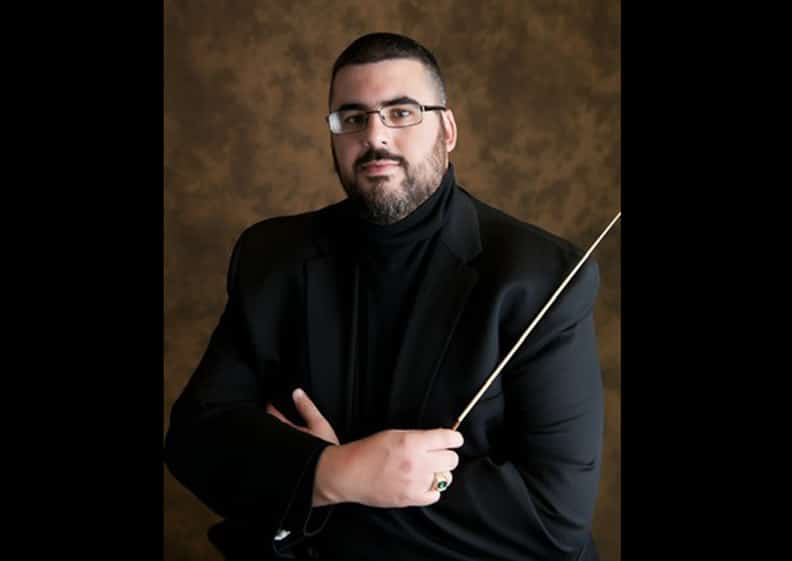A word in the ear of my pals in the Phil
mainThere are many Philharmonic Orchestras in the world, full of pomp and circumstance, but there’s only one Phil – and that, as any well-educated child will confirm, is Liverpool. The Royal Liverpool, if we’re being formal.
There’s a musical spirit on the Mersey unlike any other and I’m always chuffed to go and hear the Phil even when, as for much of the past two decades, they’ve been down in the dumps. But they’re right back on top form now with young maestro Vassily Petrenko and there’s no telling how high they might fly.
Which is why I’d like to drop a little word of caution in your ears, guys and gals.
There’s a new conductor coming your way next month, apparently for his UK debut. His name is Roberto Minczuk and he’s music director of the Brazilian Symphony Orchestra, which – if you’ve been reading this space as attentively as I know you do – you will be aware has just summarily sacked half its players for ‘insubordination’. The other half are being made to reaudition for their jobs. Meantime, the youth orchestra is being substituted for adult players.
This process appears to be the bright idea of Mr Minczuk and it is totally at odds with modern practice in civilised orchestras. As soon as Mr Minczuk is finished with you lot next month, he’s heading down to London to try and recruit some hungry freelancers to fill the gaps he has caused in the OSB. They, like you, should be aware of what this chap is up to.
Now far be it for a deskbound southerner like me to advise the working classes of Liverpool on matters of industrial relations. But, purely as a matter of pride and solidarity, I thought some of you might like to send a message to Mr Minczuk – either through your management, or via this space – on what you think of his show so far… and whether you want to play with a bloke from the other side of the world who has so much musician misery on his conscience.
And if you’re short of a tango conductor on May 12, I’m sure I can find a local substitute.
Don’t get me wrong. I’m not asking you to boycott Minczuk, as many others are already doing. Just let him know your feelings and maybe he’ll think twice.
That’s it, guys and gals. I’m so looking forward to be with you later this year.
Love to Jayne, Vasily, Ed and all the ex-Brummies.
Ta-ra for now.
Norman





Unfortunately it appears very likely that the cba of the Brazilian orchestra did not contain any language that would set up the procedure for proper non-renewals based on artistic standards. Or, if it did, that language was very weak (the notion of a loophole comes to mind….). Otherwise, this situation would probably not be unfolding like it is. I hope that a lesson has been learned here by both sides and that steps will be taken in the future to agree on and codify a procedure. How can one responsibly build an orchestra without such an integral review component adopted as part of the regular cycle of doing business and assessing results against desired long-term artistic goals–assuming, again, that the current cba or equivalent document is insufficient or completely silent in this area? Lacking that, I have to say that what is happening now is probably a good thing, in the end, in getting people to focus on one huge aspect of the contract that apparently is not working, or is working very poorly. And also, I hate to say it, the ability of most things and people to do most things tends to decline as time passes on. I said “most” not “all.” My car has more breakdowns as it ages; my house needs more repairs at it ages; my eyesight gets worse as I age; my ability to do basic daily tasks will probably decline with age also; my reaction time when driving on the road slows down with age; and on and on and on goes the list. This is a fact of life we cannot escape: therefore, it is not implausible that many artists will lose their abilities with age and that is something we should not lose sight of either.
I’m a little uneasy about the vilification of Mr. Minczuk, and wish we had more information about what has caused him to take this action.
I assume the Orchestra is playing below par and he wants to improve standards, but if you have a bunch of musicians who are not playing well (and, dare I say it, perhaps never have) how are you to improve standards without replacing some of the players? Are they to be allowed to hang on for ever, and the Orchestra to remain mediocre?
Of course the situation has been appallingly badly handled and of course no-one wants to put men with wives and families to support onto the streets, but if the Orchestra is to improve it’s hard to know what would be a civilised alternative. Pension them off, I suppose, but probably the Orchestra doesn’t have the funds to do this.
It’s a real quandry.
Thank you Norman. This request to your colleagues at the Royal Liverpool Orchestra is one more of the highly appreciated positionings you have been taken against the abuses our OSB colleagues are suffering.
@Troll CA, one more time we have to read the comments of people that always try do defend the management of the OSB, but never have the courage to show their real names. This, more than anything else, speaks against what this incompetent management is doing to the orchestra.
Your text is so disgusting in trying to trace paralells between your posessions, your car and so on and human beings, it is so cynical, full of prejudices and inhuman, that it deserves only one comment on my part.
It is the real picture of how the FOSB treats its musicians. Like parts of machines. If you wanted to try to harm the reputation of the FOSB people a little bit more, be sure you did it.
The management of the orchestra itself praised individually all the musicians for their brilliant season. No, the orchestra is not mediocre. It’s not about high playing standards, they only say it is. But what they are trying to do is to give demonstrations of power all the time. I’m not a member of the orchestra and I wouldn’t be here if it weren’t for the tremendous abuse these musicians are suffering. This abuse is extended to their Youth Orchestra that is being forced to play the subscription concerts instead of the professional orchestra.
I am appalled with such a direct comparison between making music and driving a car. If being a good orchestra musician depended solely on one´s technical skills, I doubt the international community would be so mobilized around this particular issue. Does one not gain anything with age and experience? Then, by all means, replace all players with 20-year-old agile hands! I´m sure it will sound and feel the same…
Although I am myself confused as to RM´s motivations for such inexplicable actions (and will not simply accept a George Bush explanation such as “because he´s evil”), I do hope he will be met with increasing resistance by his own players and guests. Although he is in part responsible for the increasing quality the orchestra has shown in the past few years, replacing half the staff is a ludicrous affirmation of his own incompetence as a leader (I do not question here his abilities as an artist or manager).
Many of these player who were sacked (perhaps not all) represent the best we have in the country. They are also our beloved professors and have dedicated their lives to music. I have attended many of their concerts (have you David?) and can affirm they have the ability to provide their audience with unforgettable, marvelous and highly spiritual experiences. What else could you ask for?
Dear David, you’re right, it’s a real quandary and the situation has been badly administrated. But I don’t think Mr.Minczuk is being ‘vilified’ here: Since the beginning of the whole affair he has preferred to hide behind nebulous statements or has tried to play things down as only administrative and then legal matters, letting his antics speak in his ‘behalf’… Since you seem to know a lot about the musical and human sides of the whole affair, can you imagine a worst case scenario?
Brave Mr. Lebrecht,
the spirit of your appeal to british young musicians immediately reminds me of the progressive ideas in Corno di Bassetto’s music criticism.
And by the way of fake profiles, I do love, as Mr. Monteiro, all FOSB’s social media trolls.
Wouldn´t this be an ideal opportunity for Mr. Minczuk to be available for a long chat after the concert and give his personal view of the facts as well as answering questions from those present. He lived for many years in America so language would not be a problem.
Below the link for John Neschling´s last post on the OSB. With Google translation this long and enlightening post on OSB is a must.
http://semibreves.wordpress.com/2011/03/31/e-agora-osb/
It must clarified that it is not “evaluation” everyone is against. Of course an orchestra must develop, some replacements must be made eventually. But that is not the real question. How can you evaluate in half an hour an important repertoire at 30 day notice during vacation time? Why should Mr. Minczuk be credited to correctly evaluate in such precarious conditions (is it fair to ask row musicians to play as soloist difficult concerti?) if he himself says he cannot know what is going on in the rows of the orchestra he has been conducting for the last six, yes, SIX, years? How can anyone be led to believe that it is really an evaluation and not a pretext to dismiss (as it has been done) musicians “non grati” who have been requesting his removal for the last four years? Is it possible that Mr. Minczuk is right whilst the whole world – musicians in Brazil and abroad, public and press alike – is wrong? Has this ever happened in any other orchestra in the world ?And please, do not take the OSESP (best Brazilian orchestra) as a precedent, because it is not so, different circumstances and timing. Again, if a conductor has been with an orchestra for six years and was not able to improve it, it seems at least probable that an extemporaneous and unheard of “evaluation” will not yield significant results. And when that probability takes place at the cost of 44 familys’ income, it is simply perverse.